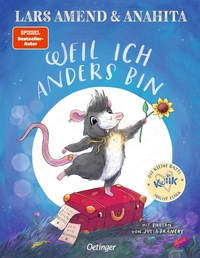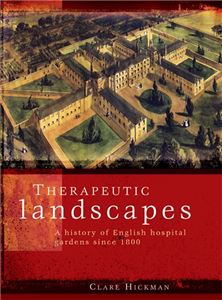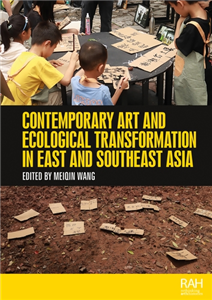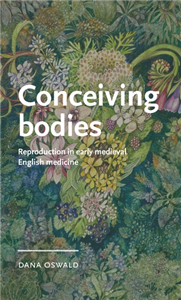Your Search Results
-
Springer Nature
For over 175 years Springer Nature has been advancing discovery by providingthe best possible service to the whole research community.We help researchers uncover new ideas, makesure all the research we publish is significant, robust and stands up to objectivescrutiny, that it reaches all relevant audiences in the best possible format, and can be discovered, accessed, used, re-used and shared.Wesupport librarians and institutions with innovations in technology and data; and providequality publishing support to societies. As a research publisher, Springer Nature is home to trusted brands including Springer, Nature Research, BMC, Palgrave Macmillan and Scientific American. https://group.springernature.com/gp/group
View Rights Portal
-
Promoted Content2023
Textbook of Korean Medicine
Medicinal drugs and formulations
by Dr. Kenny Kuchta, Prof. Dr. Hans Wilhelm Rauwald, Hans Rausch and Dr. Raimund Royer
The consistent and evidence-based development of Korean medicine in many clinical application areas has significantly improved its international status in recent years. The basis for this development is one of the most important medical books in Korea, the „Donguibogam“, a clinical lexicon of applications compiled about 400 years ago; at that time the traditional work also enjoyed the highest recognition in China. In 2009 it was included in the „Memory of the World“ register of UNESCO. Even now after 400 years, it still serves as a manual for writing prescriptions for many physicians in Korea, and testifies that the understanding of nature and human disease patterns is still current and clinically applicable even in the modern industrialised world. This work provides ■ understanding for Korean medicine, ■ many selected medicinal formulations and their fields of application, ■ the description and evaluation of important traditional single remedies, ■ the corresponding drug monographs with information on analytical testing
-
Promoted Content2023
Preventing Migraines Naturally
by Dr. C. Gaul
Migraine, a widespread disease Migraine is the second most common headache disorder in western industrialised countries. Pulsating headache attacks occur at more or less frequent intervals, usually on one side of the head. Women are up to three times more likely to be affected than men. In a quarter of patients, the disease begins in childhood and adolescence, and the onset of migraine attacks after the age of 45 is rather unusual. Most migraine attacks occur between the ages of 20 and 40. This self-help book provides migraine patients with up-todate medical and scientifically sound information on how to - be able to relieve headaches and migraines efficiently and sustainably using natural remedies, - reduce the frequency of pain attacks, and - better manage headaches and migraines with simple preventive measures. Improve your quality of life!
-
 Trusted Partner
Humanities & Social SciencesFebruary 2017
Trusted Partner
Humanities & Social SciencesFebruary 2017Conquering nature in Spain and its empire, 1750–1850
by Helen Cowie, Andrew Thompson, John M. MacKenzie
This book examines the study of natural history in the Spanish empire in the years 1750-1850. During this period, Spain made strenuous efforts to survey, inventory and exploit the natural productions of her overseas possessions, orchestrating a serries of scientific expeditions and cultivating and displaying American fauna and flora in metropolitan gardens and museums. This book assesses the cultural significance of natural history, emphasising the figurative and utilitarian value with which eighteenth-century Spaniards invested natural objects, from globetrotting elephants to three-legged chickens. It considers how the creation, legitimisation and dissemination of scientific knowledge reflected broader questions of imperial power and national identity. This book will be of particular interest to scholars and students of Spanish and Latin American History, the History of Science and Imperial Culture
-
 Trusted Partner
Humanities & Social SciencesMarch 2017
Trusted Partner
Humanities & Social SciencesMarch 2017Imperialism and the natural world
by John M. MacKenzie
Imperial power, both formal and informal, and research in the natural sciences were closely dependent in the nineteenth century. This book examines a portion of the mass-produced juvenile literature, focusing on the cluster of ideas connected with Britain's role in the maintenance of order and the spread of civilization. It discusses the political economy of Western ecological systems, and the consequences of their extension to the colonial periphery, particularly in forms of forest conservation. Progress and consumerism were major constituents of the consensus that helped stabilise the late Victorian society, but consumerism only works if it can deliver the goods. From 1842 onwards, almost all major episodes of coordinated popular resistance to colonial rule in India were preceded by phases of vigorous resistance to colonial forest control. By the late 1840s, a limited number of professional positions were available for geologists in British imperial service, but imperial geology had a longer pedigree. Modern imperialism or 'municipal imperialism' offers a broader framework for understanding the origins, long duration and persistent support for overseas expansion which transcended the rise and fall of cabinets or international realignments in the 1800s. Although medical scientists began to discern and control the microbiological causes of tropical ills after the mid-nineteenth century, the claims for climatic causation did not undergo a corresponding decline. Arthur Pearson's Pearson's Magazine was patriotic, militaristic and devoted to royalty. The book explores how science emerged as an important feature of the development policies of the Colonial Office (CO) of the colonial empire.
-
 Trusted Partner
August 2024
Trusted Partner
August 2024Die kleine Ratte Kwiik macht stark. Weil ich wichtig bin
Ein Wimmelbuch, das Kinder stark macht
by Lars Amend, Anahita, Julia Francke
Hier werden Kinder stark Achtung, hier kommt Kwiik! In diesem kunterbunten Wimmelbuch von Bestseller-Autor Lars Amend dreht sich alles um eine kleine Ratte, die sich traut, anders zu sein. Das Pappbilderbuch enthält fünf detailreich illustrierte Szenen zu den Themen Achtsamkeit und Selbstliebe. In jeder Szene findet sich ein starker Glaubenssatz, der für Kinder ab 2 Jahren leicht verständlich ist. So lernen schon die Allerkleinsten spielerisch, ihre Stärken zu erkennen und diese auch auszusprechen. Kleine Suchaufgaben in den Wimmelbildern runden das Buch ab und sorgen für viel Spaß beim Lesen und Entdecken! Ein wunderbares Wimmelbuch für Familien, die wichtige Themen wie Selbstliebe und Achtsamkeit schon früh in den Alltag integrieren möchten. Die kleine Ratte Kwiik. Weil ich wichtig bin: Affirmationen für Kinder Du bist stark: Ein Wimmelbuch mit kraftvollen Affirmationen für Kinder ab 2 Jahren von Bestseller-Autor Lars Amend. Einzigartig und leicht verständlich: Die detailreichen Bilder und altersgerechten Glaubenssätze laden Kinder ein, sich selbst zu lieben und zu akzeptieren. Authentisch und lebensnah: Autor Lars Amend und seine Partnerin Anahita stehen für die Themen Selbstfürsorge, Spiritualität und Achtsamkeit. Wichtiges Thema: Das unterhaltsame Pappbilderbuch macht es Kindern leicht, sich spielerisch mit sich selbst auseinanderzusetzen – für mehr Selbstliebe und Achtsamkeit im Alltag. Das kunterbunte Wimmelbuch mit der kleinen Ratte Kwiik macht Kinder ab 2 Jahren stark. Seine fünf Glaubenssätze „Ich bin klug”, „Ich bin stark”, „Ich werde geliebt”, „Ich bin in Sicherheit” und „Ich kann im Leben alles schaffen, was ich will” bieten schon den Kleinsten kraftvolle Ankerpunkte für ihren Alltag.
-
 Trusted Partner
August 2024
Trusted Partner
August 2024Die kleine Ratte Kwiik macht stark. Weil ich anders bin
by Lars Amend, Anahita, Julia Francke
Anders sein ist ganz normal! Die kleine Ratte Kwiik ist anders als andere Ratten. Während die anderen es schmutzig und dunkel mögen und gerne im Müll wühlen, liebt Kwiik die Sonne, das Tanzen und duftende Blumen. Dafür wird Kwiik gerne von den anderen ausgelacht. Auch wenn Kwiik alles tut, um dazuzugehören: die kleine Ratte ist einfach anders. Aber ist das etwas Schlechtes? Ist es nicht ein Geschenk, anders und besonders zu sein? Bestseller-Autor Lars Amend erzählt in seinem Bilderbuch für Kinder ab 3 Jahren eine warmherzige Geschichte über Mut und Selbstakzeptanz. Die kleine Ratte Kwiik beschäftigt sich mit den großen und kleinen Fragen des Lebens, mit denen jeder irgendwann konfrontiert wird. Das unterhaltsame Bilderbuch gibt Eltern wertvolle Impulse, um mit ihren Kleinkindern altersgerecht über Themen wie Toleranz und Anderssein zu sprechen. Eine wunderbare Geschichte für alle Familien, die Selbstliebe und Achtsamkeit in ihren Alltag integrieren möchten. Weil ich anders bin: Ein Bilderbuch über Selbstakzeptanz – und über eine mutige kleine Ratte Liebe dich selbst: Ein kraftvolles Bilderbuch für Kinder ab 3 Jahren von Bestseller-Autor Lars Amend. Wichtige Alltagsthemen: Die Bilderbuchgeschichte greift wichtige Themen wie Toleranz und Selbstliebe verständlich und altersgerecht auf. Authentisch und lebensnah: Autor Lars Amend und seine Partnerin Anahita stehen für Selbstfürsorge, Spiritualität und Achtsamkeit. Stärkt das Selbstbewusstsein: Die Geschichte erzählt einfühlsam von Kwiiks Mut, anders zu sein und eignet sich hervorragend für Eltern, um mit ihren Kindern über wichtige Werte wie Selbstakzeptanz zu sprechen. Die kleine Ratte Kwiik setzt sich in diesem warmherzigen Bilderbuch mit Themen wie Selbstfürsorge und Achtsamkeit auseinander. Kinder ab 3 Jahren erfahren hier, wie sie ein ausgeglichenes Leben im Einklang mit sich selbst führen können und lernen, auf ihre innere Stimme zu hören.
-
 Trusted Partner
August 2024
Trusted Partner
August 2024Die kleine Ratte Kwiik. Weil ich anders bin
by Anahita, Lars Amend, Cathlen Gawlich, Lars Amend, Anahita, Ralf Kiwit, Ralf Kiwit, Patrick Ehrlich, Insa Schwartz, Ralf Kiwit, Julia Francke
Die kleine Ratte Kwiik ist ganz anders als die anderen Ratten. Während die anderen genüsslich im Müll wühlen und es schmutzig und dunkel mögen, schnuppert Kwiik viel lieber an duftenden Blumen und liebt es zu tanzen und genießt den Sonnenschein. Dafür wird Kwiik von den anderen ständig ausgelacht. Und obwohl die kleine Ratte alles tut, um dazuzugehören, ist ganz klar, dass Kwiik einfach anders ist. Aber ist das eigentlich schlimm? Ist es nicht auch ein Geschenk, anders, ganz besonders zu sein? Dieses außergewöhnliche Hörbuch umfasst zwei Bilderbuchgeschichten von der kleinen Ratte Kwiik, die richtig viel Mut machen und Klein und Groß in Selbstliebe und Achtsamkeit stärken. Inklusive bestärkendem Song und Affirmationen für den Alltag. - Liebe dich selbst: Ein kraftvolles Mitmach-Hörbuch für Kinder ab 3 Jahren von Bestseller-Autor Lars Amend. - Wichtige Alltagsthemen: Toleranz und Selbstliebe verständlich und altersgerecht aufbereitet. - Authentisch und lebensnah: Autor Lars Amend und seine Partnerin Anahita stehen für Selbstfürsorge, Spiritualität und Achtsamkeit. - Stärkt das Selbstbewusstsein: Die Geschichte erzählt einfühlsam von Kwiiks Mut, anders zu sein und eignet sich hervorragend für Eltern, um mit ihren Kindern über wichtige Werte wie Selbstakzeptanz zu sprechen.
-
 Trusted Partner
MedicineMay 2013
Trusted Partner
MedicineMay 2013Therapeutic landscapes
A history of English hospital gardens since 1800
by Clare Hickman
Therapeutic landscapes uniquely brings together historical and contemporary debates on the use of the garden as a therapeutic space. Hickman narrates the story of the landscapes associated with psychiatric, general and specialist medical institutions and asks what did they look like, how were they used and how did this relate to medical concepts? It traces the history of these gardens from the grottos, Chinese galleries and summer houses of elite nineteenth-century lunatic asylums, through Florence Nightingale's championing of the Victorian pavilion hospital design with its courtyard gardens, and the open-air institutions of the Edwardian period with their revolving chalets. It concludes with a discussion of new hospital gardens being created by designers such as Dan Pearson in the twenty-first century. This book will be essential reading for those interested in the histories of place, space and material culture, and in particular medical historians, garden historians and historical geographers. ;
-
 Trusted Partner
April 2023
Trusted Partner
April 2023Purveyors to the Court
How politics makes use of science and breaks down because of it
by Klaus Ferdinand Gärditz
— Astute analysis of the relationship between politics and the natural sciences — Danger of undermining democratic processes Today, political decision-making processes are closely intertwined with processes of scientific knowledge generation. The natural sciences play a central role in politics. This became particularly clear during the corona pandemic and in the regular press conferences in which politicians largely narrowed their course to scientific findings. The consequence of this maxim is that the rationalisation of politics is accompanied by a politicisation of science. Science is exploited, and sometimes allows itself to be exploited. In his equally brilliant and sharp analysis, Klaus Ferdinand Gärditz explains the consequences of this development for the democratic process in particular.
-
 Trusted Partner
2022
Trusted Partner
2022Cannabis
A handbook for theory and practice
by Dr. Andreas S. Ziegler, Philipp Böhmer, Prof. Dr. Udo Bonnet, Prof. Dr. Peter Cremer-Schaeffer, Dr. Manfred Fankhauser, Dr. Hendrik Greve, Jackie Grünert, Dr. Klaus Häußermann, Carla Heldt, Prof. Dr. Thomas Herdegen, Dr. Michael Jeitler, Prof. Matthias Karst, PD Dr. Christian S. Kessler, PD Dr. Werner Knöß, Dr. Alberto Manasse Laginha, Dr. Kirsten Müller-Vahl, Dr. Frank Musshoff, Dr. Dr. Gerhard Nahler, Dr. Thorsten Opitz, Prof. Dr. Michael Orth, Albina Petker, PD Dr. Magdalena Prüß, Klaus Reh, Prof. Dr. Roman Rolke, PD Dr. Gisela Skopp, Dr. Felix Stehle, Prof. Dr. Philipp Steven, Prof. Dr. Markus Veit, Dr. Sascha Weber, Jakob Johann Wiese, Dr. Jacqueline Wiesner, Dr. Anne Katrin Wolf, Prof. Dr. Astrid Zobel
Cannabis has been used as a drug since antiquity – but only recently has it progressed to become one of the most exciting medical-pharmaceutical topics of our times. In scarcely any other area of pharmacotherapy has the state of knowledge recently developed at comparable speed. Experts from a variety of fields are constantly working to generate new scientific evidence for the therapeutic use of cannabis and/or cannabinoids and to provide patients with quality-assured medicinal cannabis. This book is the first to give representatives of all relevant areas of expertise the chance to speak. Alongside medical-therapeutic aspects, they address such questions as cultivation, quality assurance, patient care practices and patient counselling. The result of this accumulated knowledge and skill is a unique overall picture that, for the first time, combines and consolidates the current legal and scientific framework of medicinal cannabis provision! All facts have been painstakingly researched and checked. The result is a scientifically valid work, which sets the standard. This excellent compendium is indispensable for everyone who comes into contact with cannabis for professional or personal reasons.
-
 Trusted Partner
2024
Trusted Partner
2024Cannabis
A handbook for science and practice
by Dr. Andreas Ziegler
Cannabis from A to Z – now available in English The use of cannabis for medicinal purposes can be traced back to antiquity, but it is only recently that it has garnered attention as one of the most exciting medicalpharmaceutical topics. In hardly any other area of pharmacotherapy has knowledge of late developed with comparable dynamism. Experts from different fields are continuously working on new scientific evidence for the therapeutic use of cannabis and cannabinoids in order to provide patients with quality-assured cannabis medicines. For the first time, representatives of all relevant disciplines contributed to an exhaustive work on this topic, addressing medical-therapeutic aspects as well as questions on cultivation, quality assurance, supply practice, and patient care. The concentrated expertise created a unique, comprehensive picture, offering an unprecedented, consolidated scientific and legal framework of medical cannabis care. All facts have been conscientiously researched and meticulously reviewed. The result is a scientifically valid work setting new standards. For all those who deal with cannabis for professional or personal reasons, this exceptional book is indispensable.
-
 Trusted Partner
2020
Trusted Partner
2020Veterinary Diseases and their Treatment
Dogs, cats, horses, pigs, cattle
by Dr. Wolfgang Daubenmerkl
Flea dermatitis in dogs, runny noses in cats, colic in horses – when our four-legged friends suffer, the owners suffer with them and want to find the best possible treatment. Alongside conventional medicine, natural remedies and homoeopathic treatments also offer opportunities for treating animals – but which of them have proved effective? An experienced veterinarian and alternative practitioner draws on his wealth of knowledge and explains ■ Typical clinical pictures with causes, symptoms and their diagnosis ■ Tried and tested proposed treatments from conventional medicine, homoeopathy, phytotherapy and other procedures ■ Basic principles, such as structure and function of organs, nerve and hormone systems, blood circulation Here the reader can quickly find the most effective method of treatment!
-
 Trusted Partner
2022
Trusted Partner
2022Cannabis
Prescribing aid for physicians
by Dr. Franjo Grotenhermen and Dr. Klaus Häußermann
The therapeutic use of cannabis follows the maxim: Start low, go slow! That is how to reach the optimum dose and efficacy with minimum side effects. But this balancing act requires relevant information. Our authors, recognised cannabis experts, have put everything important together in one place: - Indications and routes of administration - Effects, interactions and side effects - Selection and prescription of suitable cannabis-based medicines - Practical tips, e.g. about travelling or driving and road use The 4th edition includes updates on the legal situation, the pharmacology of the endocannabinoid system and of cannabidiol. Directions for use and tips for patients taking cannabis have been added, together with the new prescribing modalities for physicians as well as a list of available cannabis products. This prescribing aid covers the expanded range of cannabis-based medicines and the current legal position.
-
 Trusted Partner
The ArtsMarch 2026
Trusted Partner
The ArtsMarch 2026Contemporary art and ecological transformation in East and Southeast Asia
by Meiqin Wang
This anthology, presenting new research from fourteen scholars, delves into the interplay between contemporary art and ecological concerns in East and Southeast Asia. Focused on the concept of artistic remediation, the book unravels the diverse capacities of art to combat systemic anthropogenic destruction to the environment and ecology. At its core, the book articulates the ongoing ecological transformation in art and art history that embraces a paradigm shift in human-nature relationships, emphasizing interconnectedness of all life forms of the Earth. Bridging art studies, activism, and environmental studies, the book examines how artistic practices in the region have engaged with ecocritical reflection, biodiversity advocacy, sustainable practices, and environmental justice, among others. Providing a platform for critical and timely analysis of artistic interventions in the face of existential crises, the book acknowledges diverse voices of scholars who have situated their scholarship in the cultural and artistic specificities of various societies, locales, and communities in the region.
-
 Trusted Partner
Literature & Literary StudiesMay 2024
Trusted Partner
Literature & Literary StudiesMay 2024Conceiving bodies
Reproduction in early medieval English medicine
by Dana Oswald
Despite reliance on ingredients like horse dung, Old English remedies for women's medicine speak to contemporary reproductive concerns. Previous translators reduced the remedies to a general category of women's medicine, but sustained examination of language reveals important distinctions: remedies for menstruation indicate social concerns about fertility, where remedies for 'cleansing' do not provide a clear path to conception, but rather foreclose it. Rarest of all are the remedies for childbirth, but their rarity is compounded by the practices of translators who conflate the language for women's reproduction into an amorphous singularity. Through an original method of hysteric philology-the combining of traditional philology with contemporary feminist and medical epistemologies-this book situates itself in the historical treatment of reproductive people as both objects and subjects of medical practice, and gestures forward in time to the contemporary struggle for bodily autonomy.
-
 Trusted Partner
MedicineJanuary 2004
Trusted Partner
MedicineJanuary 2004The Healing Arts
Health, Disease and Society in Europe, 1500–1800
by Peter Elmer
Introduction - Peter Elmer 1 Medicine in western Europe in 1500 - Sachiko Kusukawa 2 The sick and their healers - Silvia De Renzi 3 The medical renaissance of the sixteenth century: Vesalius, medical humanism and bloodletting - Sachiko Kusukawa 4 Medicine and religion in sixteenth-century Europe - Ole Peter Grell 5 Chemical medicine and the challenge to Galenism: the legacy of Paracelsus, 1560-1700 - Peter Elmer 6 Policies of health: diseases, poverty and hospitals - Silvia De Renzi 7 Old and new models of the body - Silvia De Renzi 8 Women and medicine - Silvia De Renzi 9 The care and cure of mental illness - Peter Elmer 10 War, medicine and the military revolution - Ole Peter Grell 11 Environment, health and population - Mark Jenner 12 Medicine and health in the age of European colonialism - Andrew Wear 13 Organization, training and the medical marketplace in the eighteenth century - Laurence William Brockliss ;
-
 Trusted Partner
November 2021
Trusted Partner
November 2021The Forest of the Future – A New Reality
Understanding the ecosystem
by Hans Jürgen Böhmer
What happened with forest dieback? The predictions of the 1980s that forests would be in decline across Europe have not come true. Currently, attention again focuses on the doom scenarios of the loss of entire forests and cultural landscapes in an emotional and sometimes hysterical debate. Biogeographer Hans Jürgen Böhmer refers to updated case studies and his 30 years of research experience on global ecosystems to demonstrate extremely complex interrelations of the natural world that various actors monitor in contrasting ways and characterized by different times and ideologies. Böhmer advocates to embed the sustainability debate more strongly in the living environment, rather than relying exclusively on model calculations.
-
 Trusted Partner
Trusted Partner
-
 Trusted Partner
Medical & healthcare lawAugust 2016
Trusted Partner
Medical & healthcare lawAugust 2016Medicine, patients and the law
Sixth edition
by Margaret Brazier. Series edited by Simona Giordano
Embryo research, cloning, assisted conception, neonatal care, saviour siblings, organ transplants, drug trials - modern developments have transformed the field of medicine almost beyond recognition in recent decades and the law struggles to keep up. In this highly acclaimed and very accessible book, now in its sixth edition, Margaret Brazier and Emma Cave provide an incisive survey of the legal situation in areas as diverse as fertility treatment, patient consent, assisted dying, malpractice and medical privacy. The book has been fully revised and updated to cover the latest cases, from assisted dying to informed consent; legislative reform of the NHS, professional regulation and redress; European regulations on data protection and clinical trials; and legislation and policy reforms on organ donation, assisted conception and mental capacity. Essential reading for healthcare professionals, lecturers, medical and law students, this book is of relevance to all whose perusal of the daily news causes wonder, hope and consternation at the advances and limitations of medicine, patients and the law.
-
 Trusted Partner
Business, Economics & LawOctober 2016
Trusted Partner
Business, Economics & LawOctober 2016Medicine, patients and the law
Sixth edition
by Margaret Brazier, Emma Cave, Rebecca Bennett, Simona Giordano
Embryo research, cloning, assisted conception, neonatal care, saviour siblings, organ transplants, drug trials - modern developments have transformed the field of medicine almost beyond recognition in recent decades and the law struggles to keep up. In this highly acclaimed and very accessible book, now in its sixth edition, Margaret Brazier and Emma Cave provide an incisive survey of the legal situation in areas as diverse as fertility treatment, patient consent, assisted dying, malpractice and medical privacy. The book has been fully revised and updated to cover the latest cases, from assisted dying to informed consent; legislative reform of the NHS, professional regulation and redress; European regulations on data protection and clinical trials; and legislation and policy reforms on organ donation, assisted conception and mental capacity. Essential reading for healthcare professionals, lecturers, medical and law students, this book is of relevance to all whose perusal of the daily news causes wonder, hope and consternation at the advances and limitations of medicine, patients and the law.





























